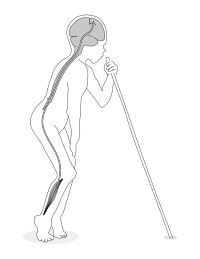
Photo from wikipedia
Background/Objectives:Epidemiologic evidence on the relationship between antioxidant vitamin intake and stroke is limited. We aimed to investigate the association between dietary intake of antioxidant vitamins and the incidence of total… Click to show full abstract
Background/Objectives:Epidemiologic evidence on the relationship between antioxidant vitamin intake and stroke is limited. We aimed to investigate the association between dietary intake of antioxidant vitamins and the incidence of total stroke and ischemic stroke.Subjects/Methods:The subjects were 82 044 Japanese men and women aged 45–74 years under the Japan Public Health Center-based Prospective Cohort Study. Between 1995 and 1997, dietary assessment was done using a food frequency questionnaire. During 983 857 person-years of follow-up until the end of 2009 we documented 3541 incident total strokes and 2138 ischemic strokes.Results:Dietary intakes of α-carotene, β-carotene, α-tocopherol and vitamin C were not inversely associated with the incidence of total stroke and ischemic stroke adjustment for cardiovascular risk factors and selected lifestyle variables. When stratified by current smoking status, the inverse association between dietary vitamin C intake and incidence of total stroke observed among non-smokers but not smokers, with respective multivariable hazard ratios for the highest versus lowest quintiles of vitamin C of 0.81 (95% confidence interval (CI), 0.68–0.96; P-trend=0.03) among non-smokers; and 1.03 (0.84–1.25; P-trend=0.55) among smokers. As for ischemic stroke, the corresponding multivariable hazard ratios were 0.76 (0.60–0.96; P-trend=0.02) among non-smokers; and 1.00 (0.78–1.28; P-trend=0.61) among smokers.Conclusions:Dietary vitamin C intake was inversely associated with the incidence of total stroke and ischemic stroke among non-smokers.
Journal Title: European Journal of Clinical Nutrition
Year Published: 2017
Link to full text (if available)
Share on Social Media: Sign Up to like & get
recommendations!